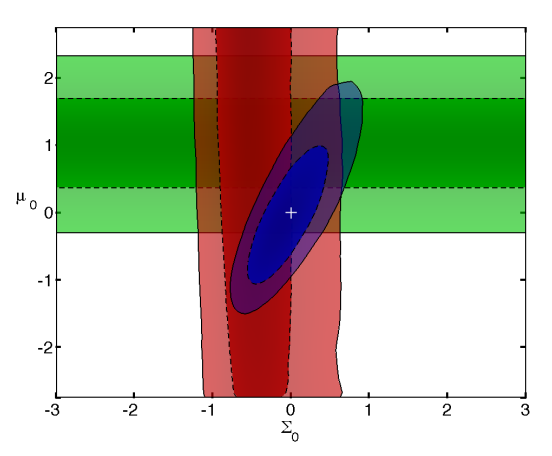| Authors: | F. Simpson, C. Heymans, D. Parkinson, C. Blake, M. Kilbinger, et al. |
| Journal: | MNRAS |
| Year: | 2013 |
| Download: | ADS | arXiv |
Abstract
Dark energy may be the first sign of new fundamental physics in the Universe, taking either a physical form or revealing a correction to Einsteinian gravity. Weak gravitational lensing and galaxy peculiar velocities provide complementary probes of General Relativity, and in combination allow us to test modified theories of gravity in a unique way. We perform such an analysis by combining measurements of cosmic shear tomography from the Canada-France Hawaii Telescope Lensing Survey (CFHTLenS) with the growth of structure from the WiggleZ Dark Energy Survey and the Six-degree-Field Galaxy Survey (6dFGS), producing the strongest existing joint constraints on the metric potentials that describe general theories of gravity. For scale-independent modifications to the metric potentials which evolve linearly with the effective dark energy density, we find present-day cosmological deviations in the Newtonian potential and curvature potential from the prediction of General Relativity to be (Delta Psi)/Psi = 0.05 \pm 0.25 and (Delta Phi)/Phi = -0.05 \pm 0.3 respectively (68 per cent CL).

